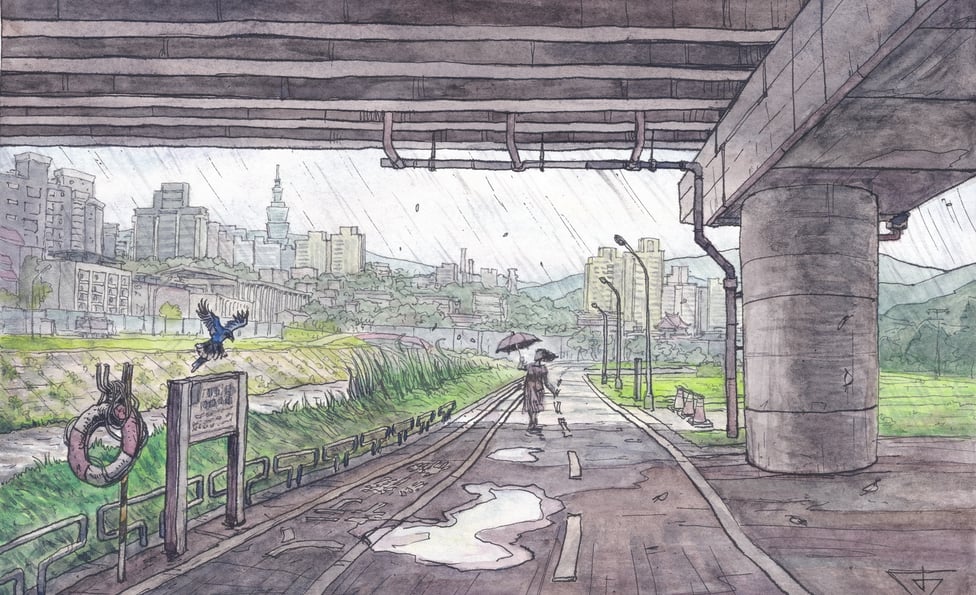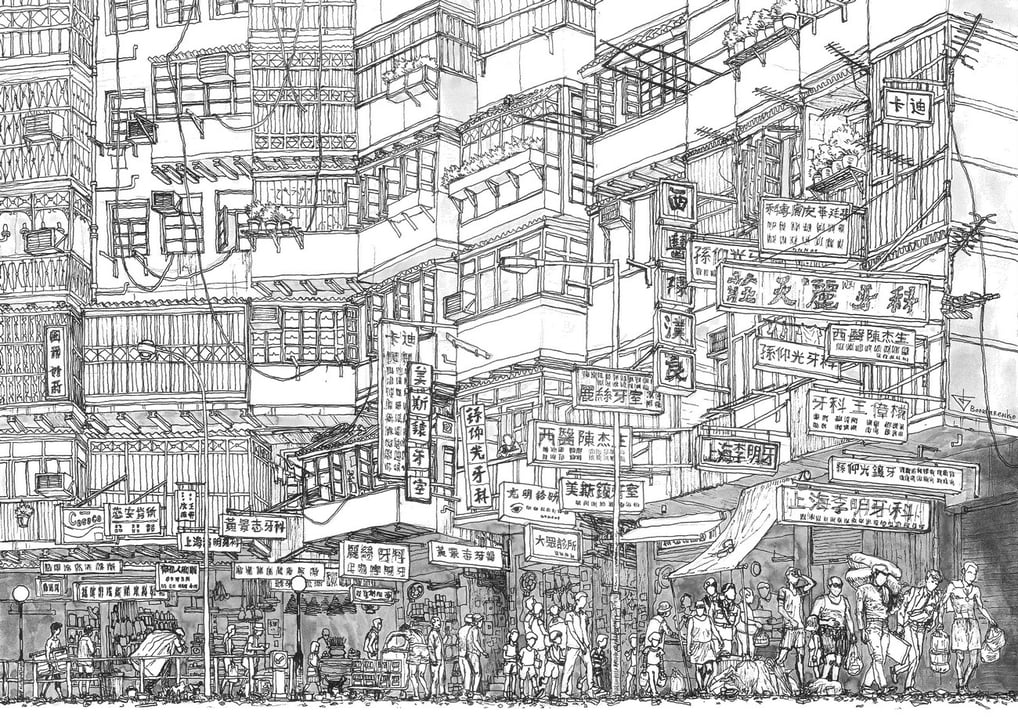Transcending the Constraints of Narratives: A Theatrical Paradigm for Understanding the Human Experience.
Theory of life as a narrative construct, where individuals can actively control and alter their life trajectories by either modifying their role within an existing narrative or writing a new plot altogether. Drawing on intertextuality, the theory posits that the wealth of human experiences already encapsulated in our collective narratives can serve as guides for navigating and reshaping our own life stories. As a practical application of stoicism, the theory highlights the two aspects of our lives we have most control over – our characters and our narratives.
PHILOSOPHY
Evgeny Bondarenko
6/21/20236 min read


In understanding the journey of human existence, a multitude of perspectives have been offered, ranging from religious doctrines to scientific theories. Yet, beneath the vast ocean of these interpretations, an innovative and riveting concept can be found, one that suggests that human lives and experiences are a form of narrative or theatre play, and that the roles we occupy are dictated by these narratives. This theatrical paradigm offers a new and empowering lens through which we can perceive our existence and navigate our lives.
At the heart of this concept lies the assertion that our understanding of the world is shaped by narratives or scripts, both internal and external. We, as individuals, exist in a construct of stories - stories about who we are, about our relationships with others, and about the world at large. These narratives guide our actions, shape our perceptions, and influence our relationships, just as a script would guide the actions and interactions of characters in a play.
Our identities, in this framework, are perceived as roles that we enact in the play of life. Each of us is an actor, consciously or unconsciously, participating in a grand narrative, playing out predefined functions and roles. From the moment we are born, our character is being written, influenced by cultural expectations, societal norms, and personal experiences.
Yet, these roles are not stagnant but rather dynamic and transformative. Like characters in a story, we evolve and change, developing new traits, attitudes, and beliefs in response to our experiences. This process of growth and change is what we often refer to as character development or the 'character arc.' However, unlike a fictional narrative where the arc is determined by the writer, in our lives, we have the power to influence and shape our character arcs, albeit within the context of the larger narrative.
Where the theatrical paradigm gains its empowering potential is in the acknowledgment that we can become aware of these scripts and roles and take an active part in shaping them. We can choose to identify, deconstruct, and rewrite the narratives of our lives, effectively directing our own play. By understanding that our lives are shaped by narratives, we can engage in a process of self-reflection and self-improvement that allows us to reassess our roles and reshape our narratives, thus fostering personal growth and transformation.
Intertextuality, a concept coined by Julia Kristeva in the 1960s, refers to the interdependence of literary texts, stating that every text is an amalgamation of past writings. It emphasizes the interconnectedness and interdependence of all texts, suggesting that they exist not in isolation but in constant dialogue with other texts.
The theory of intertextuality is crucial in the theatrical paradigm for human existence, where life narratives are understood as texts. Here, intertextuality suggests that our personal narratives, the roles we assume, and the character arcs we follow are not created in a vacuum but are influenced by a multitude of pre-existing narratives or 'texts'. These texts can take various forms such as cultural myths, societal narratives, historical events, books, movies, and even conversations. They contribute to the 'intertextual space' from which we consciously or unconsciously draw to script our lives and roles.
Through the lens of intertextuality, we realize that our understanding of our roles and identities is often derived from or influenced by these pre-existing narratives. For example, our perception of roles such as 'mother', 'leader', or 'artist' is usually informed by societal narratives, cultural myths, or specific narratives we've encountered in books or movies. Our understanding and enactment of these roles are, therefore, intertextual, influenced by a myriad of sources.
Also, the concept of intertextuality enables the process of deconstructing and rewriting our life narratives. By recognizing the intertextual nature of our narratives, we can identify the sources that have influenced our roles and character arcs. This awareness allows us to critically analyze these influences and decide if they align with our desired character development. We can choose to retain, modify, or discard influences, effectively rewriting our narratives.
In the process of reshaping our narratives, intertextuality offers a rich repository of texts from which we can draw inspiration. By exploring different narratives, we can experiment with different roles, character arcs, and life scenarios. We can learn from the experiences and wisdom embedded in these narratives, using them as a guide or blueprint in scripting our life stories.
Yet, intertextuality also underscores the importance of originality and authenticity in our narratives. While we draw from pre-existing narratives, our life stories should ultimately reflect our unique experiences, aspirations, and individuality. They should be more than mere reproductions of existing narratives but should contribute to the intertextual space with our distinct voice.
In the theater of life, unpredictability is an inescapable element that adds depth, complexity, and richness to our personal narratives. These unexpected twists and turns are akin to the plot twists in a well-crafted play, taking our character on a journey of transformation that was not originally envisaged. But, instead of viewing these unforeseen changes as threats or disruptions, they can be seen as opportunities for growth and learning, fueling our character development within the story of our life.
In any great narrative, the protagonists are often faced with unexpected challenges or surprising revelations that serve to test their mettle and reveal their true character. These plot twists serve as catalysts for change, pushing the characters to evolve, adapt, and grow. Similarly, in life, unexpected events such as loss, failure, or even sudden success can dramatically alter our path, forcing us to re-evaluate our roles and rewrite our narratives.
Unpredictability is the essence of what keeps a narrative intriguing, stimulating, and engaging. As such, the unpredictability of life keeps our personal narratives from stagnating. It pushes us out of our comfort zones and urges us to reconsider the scripts we’ve been following. It challenges us to improvise and innovate, introducing new dimensions to our character arcs and adding layers of complexity to our narratives.
This conceptualization of life as a theater, full of interconnected narratives and character arcs, offers an empowering perspective that allows individuals to see potential solutions to any situation they face. There are no absolute endings, no indefinable points within the narrative space, and no predicaments without potential paths of progression.
Every situation or circumstance an individual finds themselves in can be perceived as part of a plotline within their life’s play. This approach allows one to see beyond the immediate impact of a situation and consider it as part of an ongoing narrative. This narrative perspective offers an escape route from any predicament, enabling one to discern possible outcomes, strategies, and paths forward.
When faced with a problem or a challenging situation, we can draw on the rich intertextual space of human narratives to find a fitting arc of development. We can find stories of individuals who have faced similar challenges and study how they navigated their situation.
If a person finds themselves at a low point in their life, feeling stuck or defeated, they can choose to see this as a classic narrative trope - the hero's downfall. Within this frame of understanding, the hero's downfall isn't the end of the story but a catalyst for transformation and growth. From this point, many character arcs could evolve - the comeback, the reinvention, the revelation. By seeing their situation through the lens of these arcs, the individual can draw inspiration, hope, and a roadmap for their journey forward.
In this context, the concept of "character arc" becomes a powerful tool for navigating life's challenges. A character arc is essentially a model of transformation. By identifying a relevant character arc, an individual can envisage a trajectory from their current situation to a desired state. They can use this arc as a blueprint, informing their actions, decisions, and mindset.
The narrative approach also promotes resilience and adaptability. Recognizing that every narrative has its twists and turns, highs and lows, and that every character experiences growth and transformation, encourages acceptance of change and adversity. It instills the understanding that hardships are integral parts of the narrative, necessary for character development and plot progression.
Viewing life as a series of interconnected narratives offers a potent mechanism for dealing with life's predicaments. It allows for the visualisation of a way forward from any situation, encouraging resilience, adaptability, and personal growth. By embracing their role as the scriptwriter, director, and protagonist of their life's play, an individual can navigate their journey with agency and purpose.
In the theatrical paradigm, the locus of control lies in our capacity to play our character role and write the plot for our character. The idea here isn't that we have absolute control over our circumstances or fate. Rather, it emphasizes the importance of agency in interpreting, responding to, and shaping our experiences within the boundaries of our current realities.
The theatrical paradigm provides a valuable framework for interpreting, navigating, and shaping our personal narratives. It brings the interplay of role and plot, of character and circumstance, to the forefront of our understanding of the human condition. Just as the stories we tell shape our perceptions of reality, so too can we shape our stories, charting a course through life that is imbued with purpose, resilience, and the power of narrative agency.
Whether one views this as a mere theoretical concept or an applicable strategy for self-determination and life navigation, the paradigm offers a fresh lens through which to perceive, interpret, and ultimately transform one's reality. And in this constant negotiation and redefinition, we create a life that is as complex, dynamic, and captivating as any plot in a play or narrative we may encounter.
Evgeny Bondarenko


















